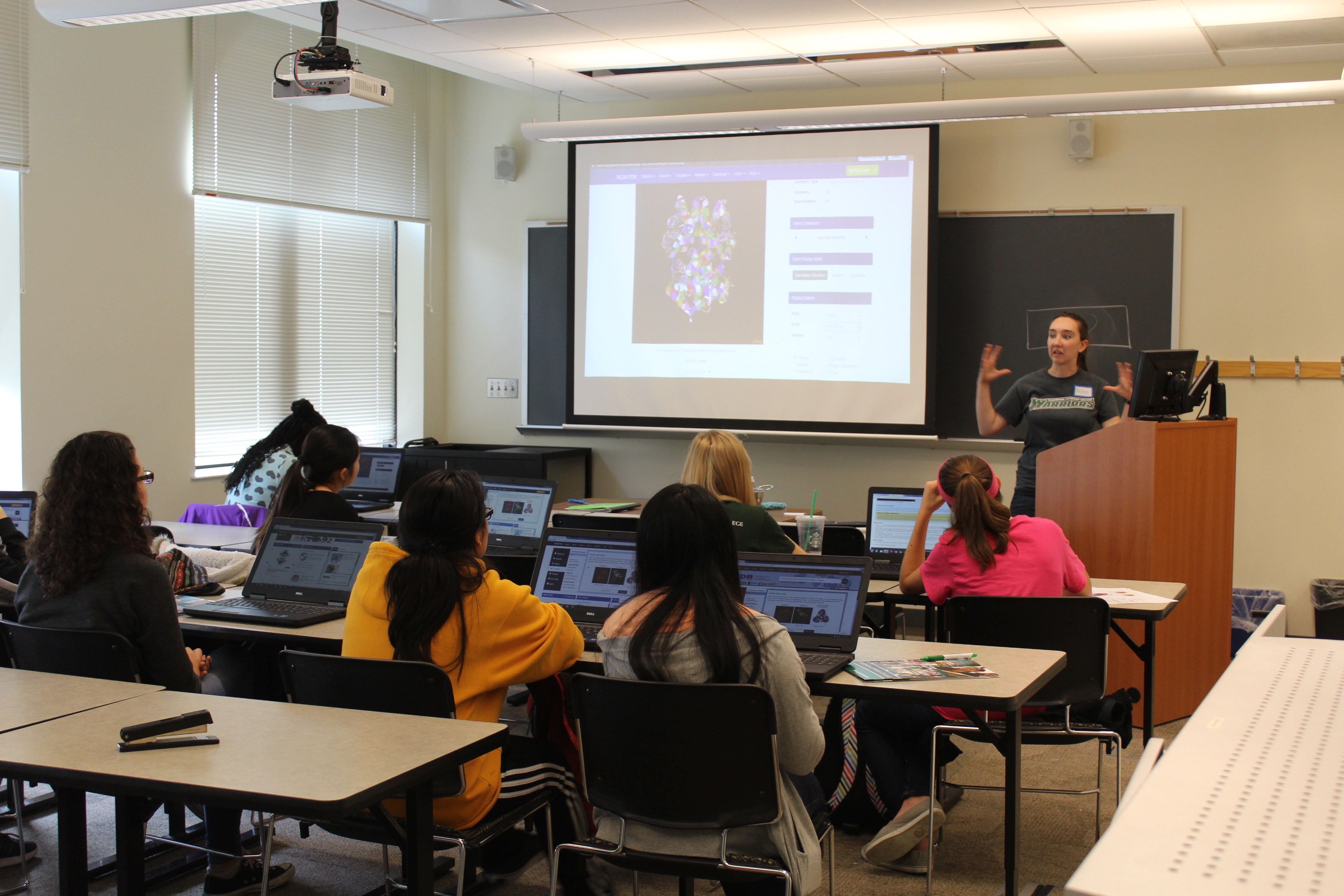Human Practices

STEM
In November 2015, we helped a fellow colleague organize and run an educational session for high school girls for the Young Women’s STEM Program. This program exposed high school girls to college level cell biology lab activities, current cell biology research, and study strategies. They were introduced to an area of science that has only been touched on briefly in their high school classes. Additionally, they were able to see what someone in the science field does and have female role models demonstrate just that. Each month, girls from high schools in the Milwaukee area had the opportunity to learn about a different scientific subject ranging from Chemistry and Biology to Mathematics and Computer Science. The idea was to push them farther than their high school classes are able and to present them with women who are in that field doing the work. For three hours once a month, these girls did hands-on activities, learned about current research, and met women working in a specific field of science with the field changing at each session. The final activity gave the girls tips and study strategies in order to succeed in the classes that would be necessary for them to pursue these careers for themselves.
WELS Church Poster
Throughout the summer, the Wisconsin Evangelical Lutheran Synod (WELS) churches were emailed posters for their bulletin boards that explained the essence of our project and how to register for our summer bioengineering camp. We included our contact information and encouraged questions to be emailed to us. Since we come from a Christian-based college, we strive to educate our fellow Christians on the topics of bioengineering and biotechnology, in such a way as to dispel misunderstandings that are commonly found in the church community.
Homeschool Teacher Surveys
In an effort to reach out to a variety of teachers to help the expansion of biotechnology knowledge, we sent out surveys to homeschool teachers around Wisconsin, Illinois, and Michigan. After hearing the responses to the surveys, we realized that it is important to make sure that homeschool children have opportunities to experience biotechnology and have access to lab procedures. These opportunities at a young age could ignite an interest in these kids that may determine the path they take when they enter college. Therefore, when we advertised for our Bioengineering Summer Camp we made sure to market our camp to homeschool students in the area. As a result, many of our students who attended the summer camp were homeschooled by a parent. They were highly interested in being in the lab and hearing lectures from various college professors. These surveys also add to our future plan of holding a conference with high school teachers. We hope to have a gathering of WELS high school teachers to meet and ask them questions on the education of biotechnology in their classrooms. We would love to set up a time to come into their classrooms, or homes if they are homeschool teachers, and bring our lab supplies to demonstrate various lab procedures to their students. This would give an opportunity to spread the knowledge of biotechnology to high school students and igniting a passion that could be pursued in a future career.
Survey Results
The students were asked to agree or disagree with the statements on a scale from 1 (strongly disagree) to 5 (strongly agree).
Question 1

From the data shown here, we can see that most homeschool teachers would feel comfortable with teaching about genetic engineering and biotechnology.
Question 2

Most homeschool teachers surveyed felt that they had a well enough awareness of genetic engineering and biotechnology that they could effectively teach it. Of the homeschool teachers surveyed, most felt that they had a good knowledge of what GMOs were.
Question 3

When asked whether they would knowingly consume genetically modified products, most homeschool teachers responded negatively.
Question 4

The survey showed very strong disagreement towards the usage of GMO products in medicinal practices.
Question 5

Most homeschooling families disagree that GMOs should be utilized in medicinal practices but not in the production of food, which agrees with the results from our previous survey questions regarding whether families considered GMOs should be utilized in food and medicine individually.
Question 6

Most homeschool families disagreed strongly, which supports the results from our previous questions.
Question 7

The general trend of homeschool families felt that GMOs are not inherently dangerous to human health, which drastically contrasts with the results of all of the previous questions.
Question 8

The majority of homeschooling families disagree that the concept of genetic engineering is unethical, which disagrees with previous questions regarding products of genetic engineering.
Question 9

It was almost unanimously agreed upon that protecting our ecosystem is important.
Question 10

There were very strong positive results for more information regarding biotechnology being involved in high school curriculum.
Question 11

Results show that most homeschooling families recognize the increasing problem of coral reef death.
Question 12

There is not much knowledge in the homeschool community about whether or not there is enough being done to prevent coral reef death.
Question 13

Fortunately, there is remarkable support for increased research and rebuilding of the coral reefs.
Survey Summary
Unfortunately, based off of the results from our surveys, we can conclude that the knowledge about GMOs, biotechnology, and coral reefs is relatively low in the homeschool communities. However, there are a range of answers so we cannot assume that our results are representative of all homeschooling families. Fortunately, we found that there is an increased desire for more information on the aforementioned topics to be implemented into educational programs and materials. Overall, from our survey we learned that there needs to be more educational materials and training available for homeschool educators so that they may be more confident and better suited to teach their students about biotechnology and GMOs.



